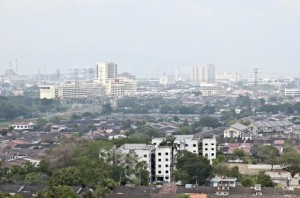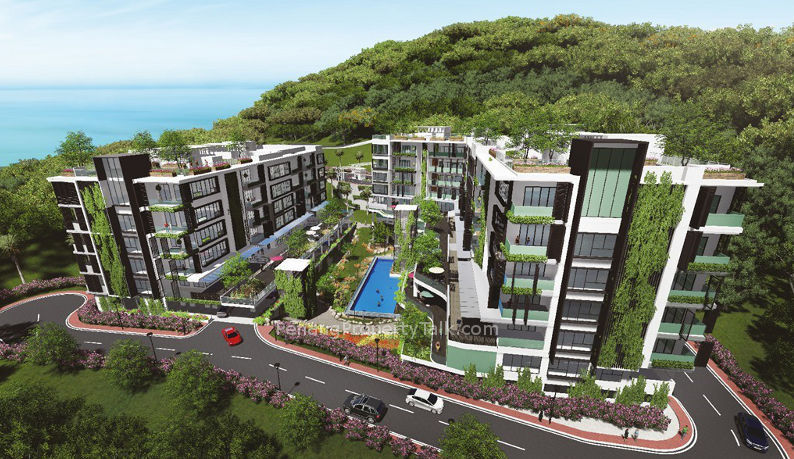Housing industry still confused as GST kicks off
 The housing industry remains uncertain on how to implement the Goods and Services Tax (GST) that takes effect from today, property developers and real estate agents have said.
The housing industry remains uncertain on how to implement the Goods and Services Tax (GST) that takes effect from today, property developers and real estate agents have said.
Malaysian Institute of Estate Agents (MIEA) president Siva Shanker said he and many other real estate agents do not know whether GST will have to be paid if someone were to buy or sell a shophouse, for example.
“If I [were] to sell a shophouse to a client and I cannot even advise him whether he’s going to be paying GST or not, what good am I as a consultant?” Siva told Malay Mail Online in a recent interview ahead of the new tax.
Siva also noted that a panel of accountants at a convention he had attended in early March said they did not know if the GST would affect a property signed for before the April 1 implementation date of the tax, if the purchase was only completed after that date.
The Real Estate and Housing Developers Association (Rehda) echoed Siva’s frustration with the ambiguity surrounding the implementation of the broad based consumption tax in the housing industry.
Rehda secretariat Karen Siow said players in the housing industry at different stages of the supply chain are still unsure what portion of the GST that they pay to the government can be claimed back.
“The industry is still facing ambiguity and uncertainty,” Siow told Malay Mail Online ahead of the tax rollout.
“[People] don’t really know what’s claimable and what’s not,” she added.
Siow said Rehda has submitted numerous proposals to the government in an attempt to clarify things, including recommendations to zero-rate houses priced below RM500,000 and to abolish stamp duty on property transactions.
“Regrettably, we have yet to receive any official reply,” she said, noting that Rehda has had discussions with the Customs Department and the Urban Wellbeing, Housing and Local Government Ministry.
Siva also complained about the government’s lack of engagement on the GST, saying the Customs Department has done little to resolve the numerous uncertainties.
“I really don’t think they did very much,” he said.
“I remember going to one seminar organised by the board of valuers where somebody from the Customs Department came and gave us a talk for an hour and a half maybe. But I remember at the end of the hour and a half being even more confused than when I first went in there. Subsequently, I think every other initiative that I’ve gone to on GST was organised by private entities or individuals,” the real estate agent added.
Rehda official Siow said Rehda estimates house prices to rise by 2.6 per cent after the GST comes into effect on April 1 at a flat rate of 6 per cent.
She noted that building material suppliers may increase prices because their cash flow is restricted, as they have to pay GST to the Customs Department at the time of supply before receiving payment from their customers.
Siow also said the GST will raise the cost of legal fees, sales and purchase agreements and bank loans, noting that such costs will eventually be borne by property buyers.
Developers will not be able to absorb these costs, she maintained, as they are already struggling with the rising costs of doing business.
Detractors argue that the GST is “regressive” and that the broad based consumption tax takes a larger percentage of income from those in the low-income groups than from high-income earners.
Economists, however, view the GST favourably, saying that it is necessary to broaden the tax base, but cautioned the government to cut wastages and leakages at the same time to improve the country’s finances.
Source: The Malay Mail Online

 Penang’s secondary property market transaction volume is expected to remain resilient with the implementation of the Goods and Services Tax (GST).
Penang’s secondary property market transaction volume is expected to remain resilient with the implementation of the Goods and Services Tax (GST). Ewein Zenith Sdn Bhd, a joint venture between Ewein Land Sdn Bhd and Consortium Zenith BUCG Sdn Bhd (CZBUCG), has received planning permission from the Penang Island City Council to go ahead and develop a
Ewein Zenith Sdn Bhd, a joint venture between Ewein Land Sdn Bhd and Consortium Zenith BUCG Sdn Bhd (CZBUCG), has received planning permission from the Penang Island City Council to go ahead and develop a  A woman paid RM2,000 as deposit for an apartment to the developer without her family’s knowledge. Her parents objected because when they came to know about it because they were afraid she would be tied down by the added commitment. She wanted to know if she could cancel the booking and get a refund.
A woman paid RM2,000 as deposit for an apartment to the developer without her family’s knowledge. Her parents objected because when they came to know about it because they were afraid she would be tied down by the added commitment. She wanted to know if she could cancel the booking and get a refund.